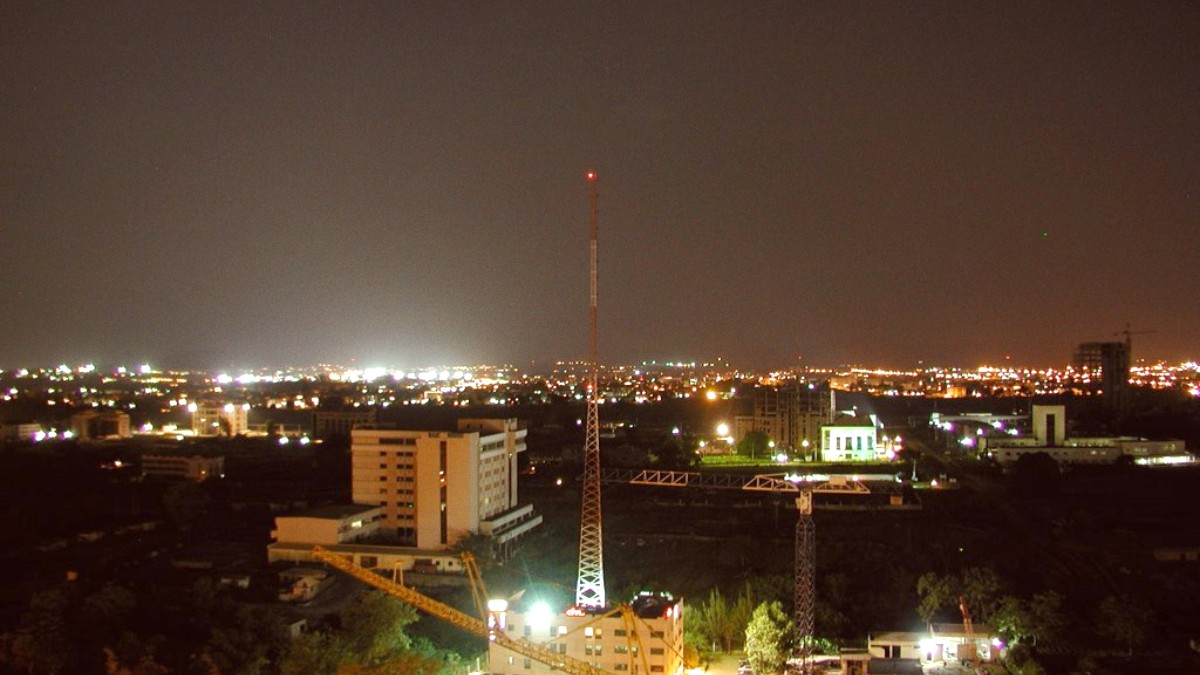
Nigeria
Gurara Waterfalls, in Niger State, is about an hour's drive from Abuja. These natural waterfalls are a popular recreational spot, especially impressive during and immediately after the wet season (around June to November). Guests relax by the falls, take photographs, or swim in designated safe areas (inquire locally).
Zuma Rock, also in Niger State, is about 45 minutes to an hour's drive from Abuja. This massive monolithic inselberg is an iconic landmark, prominently visible when traveling on the Abuja-Kaduna expressway. Its human-like face, formed by natural erosion, is a captivating sight, mainly for photos and admiration.
Plan your time effectively to see these locations outside the city.
A half-day trip (4-6 hours, including travel time). This accounts for travel, exploration of the falls, and return to Abuja. Waterfalls are most impressive during the wet season (June to November).
Mainly a quick photo stop (1-2 hours, including travel). Often combined with Gurara Waterfalls for a scenic excursion.
Beyond the city's parks, the surrounding region contains larger natural spaces.
The most accessible and impressive natural escape directly from Abuja. Best during wet season for highest water volume.
Within Abuja, environmental efforts focus on urban greening, maintaining parks like Millennium Park.
Drives toward Gurara Waterfalls offer scenic countryside. Zuma Rock against the horizon is an impressive natural feature.
This contrasting experience should be with a reputable local guide.
No major, easily accessible nature reserves with extensive wildlife or trekking are available for day trips directly from Abuja.
Explore historical and cultural sites outside Abuja for a broader perspective on Nigeria.
This unique, privately owned castle is built in a medieval-European style, an unexpected sight in Nigeria.
Arrange this through a reputable local tour operator for cultural sensitivity and safety.
These sites offer cultural insights through interaction and observation of local commerce and artistry.
No major pilgrimage sites directly accessible for day trips for foreign tourists are commonly advertised from Abuja.
Nigeria's cultural diversity is vast. Abuja as a planned capital may differ from other regions.
Kaduna provides a glimpse into northern Nigerian culture and history.
Local villages show a stark contrast to Abuja's modern urban environment.
The Arts & Crafts Village is a hub for traditional Nigerian artistry.
Consider adding a few extra days to your itinerary to explore other major Nigerian cities or regions.
Nigeria's largest city, economic hub, and cultural powerhouse. A flight (approximately 1 hour) is the best and most effective way to connect from Abuja. Experience commercial dynamism, entertainment, and a megacity.
In southeastern Nigeria, known for history, cultural festivals (Calabar Carnival in December), and proximity to Cross River National Park. A more relaxed pace than Lagos. A flight from Abuja is practical. Explore history, cultural appeal, and natural beauty.
North of Abuja, accessible by road or train. A different urban experience with historical sites. Train from Abuja is generally safer for this route. Gain insights into northern Nigerian culture and history.
Offers a comprehensive view of Nigeria's urban landscape. Fly for best experience. (1 hour flight)
For a glimpse into northern Nigerian culture and history. This can be a longer day trip or an overnight stay by train.
To experience southeastern Nigeria's history and natural attractions (flight).